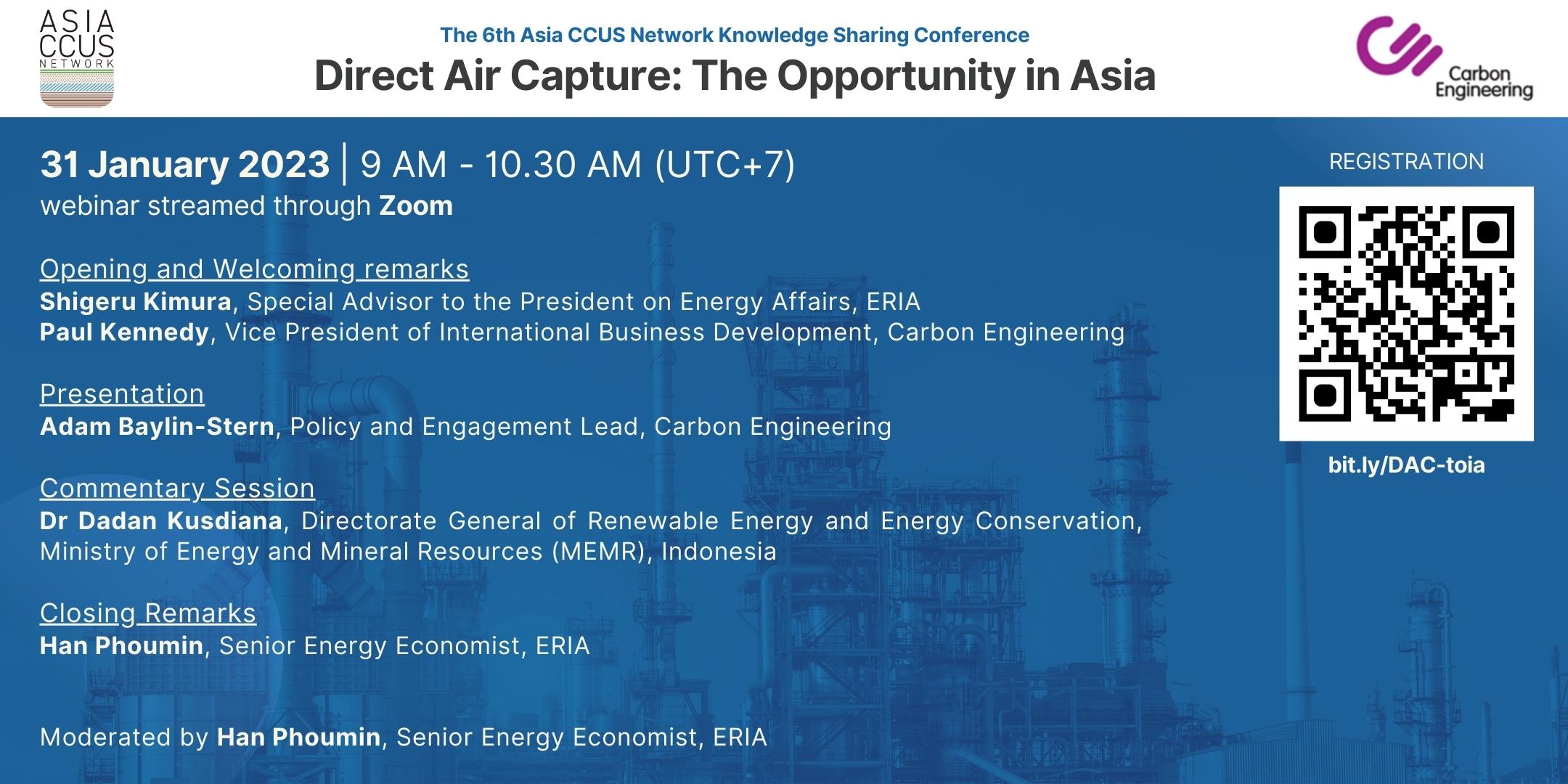News
Opinions

Carbon Capture, Utilisation and Storage (CCUS) technologies are expected to play an important role in supporting clean energy transitions across Asia as an emissions reductions pathway for fossil-fuel intensive power and industry sectors. Direct Air Capture (DAC) technology is expected to support the transition with carbon removals to counterbalance residual emissions through technologies.
Many countries around the world have committed to the energy transition as reflected in their NDCs although some countries have yet to pledge any specific target year for carbon neutrality. However, not only developed countries have committed to carbon neutrality, but many countries in the developing world also fully committed to making the energy transition from a fossil fuels-based energy system towards cleaner and greener energy systems in which more renewable energies such as wind, solar, hydropower, biomass, and other clean fuels will have a larger share in the energy mix.
Unlike capturing emissions from industrial flue stacks, DAC technology captures carbon dioxide (CO2) directly from the atmospheric air around us, through a series of chemical reactions, delivering it in a pure compressed stream suitable for storage or use. This can help counteract CO2 emissions that are technologically challenging or prohibitively expensive to abate and address the large quantities of CO2 emitted in the past that remains trapped in our atmosphere. Leading international organizations such as the Intergovernmental Panel on Climate Change (IPCC) and International Energy Agency (IEA) are highlighting the importance of high integrity, technology-based carbon removals in pursuit of these goals. The IPCC Sixth Assessment Report on mitigating climate change has stated that the direct removal of carbon dioxide from the atmosphere is now “unavoidable”; in order to reach our climate targets, we must both reduce emissions at source and also remove carbon dioxide from the atmosphere at large scale. The remaining emissions from fossil fuel combustion including power generation or industrial facilities that use fossil fuels, will need to be captured and transported to storage through CCUS technologies or through the Direct Air Capture technologies (around 2 Gt CO2 are removed in 2050 by technology-based CDR in the IEA’s Net Zero Scenario).
The conference will promote knowledge-sharing on the DAC technology and the policy and regulation needed to support its large-scale deployment. It is co-hosted by ACN and Carbon Engineering, a Canadian climate solutions company, which has been focused since 2009 on developing DAC technology and commercializing it globally at large-scale, working alongside local partners. It will include presentation of the company’s technology and business developments, and discussion of the opportunity that exists to deploy DAC in Asia as it accelerates its clean energy transition. The session will also explore possibilities for countries to pursue international and regional co-operation opportunities to be suppliers of high integrity CO2 removal, and to unlock associated economic and job opportunities.
Date: Tuesday, 31 January 2023
Time: 9:00 AM to 10:30 AM (Jakarta | GMT+7)
Place: Online Event
09:00 – 09:15 | Opening and Welcoming remarks
|
09:15 – 10:00 | Panel Discussion on “Direct Air Capture” Moderator:
Panelist:
Presentation by the panelist Discussion between the moderator and the panelist |
10:00 – 10:10 | Commentator by Dr Dadan Kusdiana, Directorate General of Renewable Energy and Energy Conservation, Ministry of Energy and Mineral Resources (MEMR) |
10:10 – 10:25 | Q&A |
10:25 – 10:30 | Closing Remarks by Han Phoumin, Senior Energy Economist, ERIA |
Invitations | Publications | Newsletters